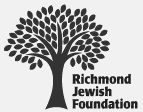Scientific studies suggest approximately 25% of how long we live is dictated by genes, and the other 75% is determined by our lifestyles and the everyday choices we make. Longevity experts at the National Institute on Aging have gone to great measures to study aging. They identified four locations across the world where many people live to be centenarians (or more). These places, called the “Blue Zones,” include the Barbagia region of Sardinia in Italy, Okinawa in Japan, Loma Linda in California, and Costa Rica’s Nicoya Peninsula. Researchers and statisticians have confirmed that in these Blue Zones, people live longer because they live smarter and better. A distillation of nine lessons from these cross-cultural communities follows:
Lesson 1: Move often and move naturally. In Blue Zone communities, physical activity is integral to daily life. They prefer to walk and engage in gardening to avoid being sedentary.
Lesson 2: Hara Hachi Bu. Centenarians in the Blue Zones tend to eat as if inspired by Hara Hachi Bu, a Confucian adage which means to stop eating when 80% full. They eat mindfully and do not rush through meals.
Lesson 3: Restrict intake of meat and processed foods. Blue Zone diets include 4 – 6 servings of vegetables a day, limit meat and incorporate beans and nuts. This dietary regimen helps reduce their chances of cardiovascular disease and diabetes.
Lesson 4: Drink red wine. Red wine contains antioxidants that can help stave off cardiovascular disease.
Lesson 5: Find purpose. Blue Zone centenarians live with a healthy sense of purpose and prioritize things that bring them meaning and joy. This is evidenced by their rich relationships with family and friends, engaging in hobbies and embracing new experiences.
Lesson 6: Take time to relieve stress. Blue Zone communities take time out to rest, socialize and meditate, which helps avert stress induced diseases.
Lesson 7: Participate in a spiritual community. In the Blue Zones, centenarians participate in religious and spiritual practices and incorporate these values into daily life. Centenarians associate faith with self-worth and build strong social networks from their faith-based practices.
Lesson 8: Family values. Centenarians prioritize family. After children marry and families grow, younger generations check in on their elders, share rituals and put family first by spending time together.
Lesson 9: Surround yourself with others. Social connectedness is ingrained Blue Zone cultures. They recognize community involvement is profoundly important to their quality of life.
What we can learn from Blue Zone cultures. We should remember that lifestyle choices have a significant impact on physical, mental, and emotional aging. There is great simplicity in the nine lessons the National Institute on Aging’s scientiests gleaned from Blue Zone cultures that reflect practicality and wisdom. These lessons demonstrate how simple actions and choices influence age destiny. And, with medical advances and modern-day conveniences, there is even more opportunity today to become a centenarian!






Leave a Reply